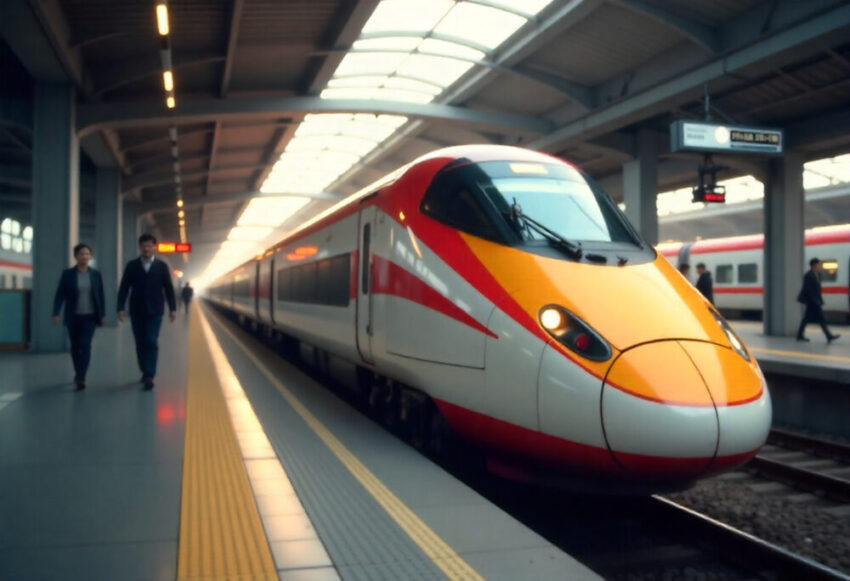
Malaysia is took a major step forward in sustainable travel with the launch of its new Electric Train Service (ETS) in August 2025. Stretching over 1,000 kilometres and connecting the country’s northern and southern regions, the line is expected to reshape domestic and international tourism by making travel faster, more convenient and more environmentally friendly. For visitors, the initiative promises new opportunities to explore lesser-known destinations across the country, while supporting Malaysia’s ambition to become a premier hub for tourism in Southeast Asia.
The ETS will significantly enhance connectivity between key centres such as Kuala Lumpur and Kluang, while opening up access to smaller towns that were once difficult to reach. Destinations like Taiping, Mersing and Kluang stand to benefit from an influx of both domestic and foreign tourists, creating fresh opportunities for local businesses. Restaurants, hotels, tour operators and transport providers are expected to see increased demand, while new eco-tourism facilities and attractions will likely emerge as these areas grow in popularity.
Sustainability is a central feature of the project. At a time when air and road travel continue to contribute to carbon emissions, the ETS offers a greener alternative. As an electric-powered rail service, it reflects Malaysia’s commitment to reducing the environmental footprint of tourism and aligns with global trends in green travel. This focus is expected to appeal strongly to eco-conscious travellers who prioritise destinations with visible commitments to environmental responsibility.
The launch of the train service also has important implications for Malaysia’s international positioning. By strengthening links between major cities and rural areas, the ETS creates a seamless tourism network that supports Malaysia’s Vision 2030 strategy, which identifies tourism as a key driver of national economic growth. The ability to move easily between Kuala Lumpur, Penang, Melaka and Langkawi — while also accessing off-the-beaten-path destinations — gives visitors more flexibility and a richer travel experience.
In addition, improved rail infrastructure is expected to boost cross-border connectivity, particularly with Singapore, Thailand and Indonesia. International travellers will be able to reach Malaysia’s attractions more easily and travel across the country without the need for multiple domestic flights or long road journeys. For overseas visitors, train travel offers a more relaxed, scenic and sustainable way to explore the diversity of Malaysia’s landscapes, from rainforests and wildlife reserves to historic towns and coastal areas.
The economic impact of the ETS is likely to be substantial. Increased visitor flows will create jobs in hospitality, transport and tourism services, while also stimulating demand for eco-friendly accommodation and infrastructure. Regions that were previously outside the main tourism circuit will now have the chance to grow their visitor economies, encouraging investment and diversifying Malaysia’s tourism offer.
In the longer term, the train service is expected to catalyse further investment in transport and tourism infrastructure. By making rail travel an attractive option for both locals and visitors, Malaysia is positioning itself at the forefront of sustainable tourism in the region. As global demand rises for destinations that combine accessibility, cultural richness and environmental stewardship, the ETS gives Malaysia a competitive edge.
With its focus on speed, comfort and sustainability, the new electric train service is set to transform the way visitors experience Malaysia. By unlocking untapped destinations, supporting eco-tourism and improving international access, the ETS will play a central role in the country’s tourism growth for years to come.




